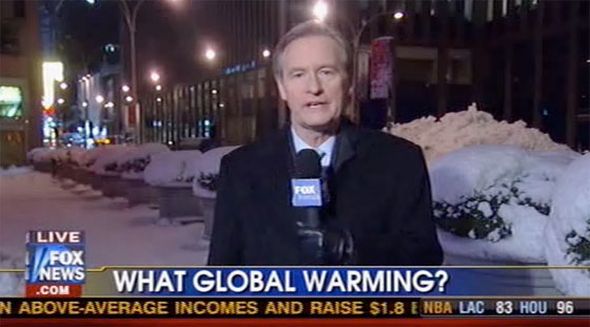My two posts about Fox News and misinformation are probably the most popular items I’ve contributed here. They’ve been widely linked, Tweeted and Facebooked hundreds of times, and viewed well over ten thousand times. That’s because they perform a simple task that, at least as far as I had seen when I wrote the first one, hadn’t been done elsewhere: They list studies (1, 2, 3, 4, 5, 6) showing that Fox News viewers are the most misinformed about an array of factual—but politicized—issues.
In these posts, I’ve tried to be as dispassionate as one can be on such a matter. I’ve repeatedly said that the studies don’t prove that Fox causes people to be misinformed; they just show a correlation, but the causal arrow could run in either direction (or both). I’ve also said that there may well be other studies out there than the 6 that I’ve found; and there may even be studies out there showing some cases where Fox News viewers are not the most misinformed. Indeed, I could design such a study myself–though it would have to be politically skewed by only asking about topics where liberals and Democrats are likely to be misinformed.
It is interesting, though, that no contrary studies have yet been produced. Until that happens, I don’t see how anyone can dispute what I’ve shown—after all, they’d have to provide evidence to the contrary, which is currently lacking.
Nevertheless, the broader political world seems to have stopped short of acknowledging this obvious state of affairs. Despite the fact that I conclusively refuted the notorious Politifact item that had accused Jon Stewart of being wrong about Fox and misinformation (he wasn’t), I don’t think the site is going to turn around and reverse itself. Its silence since then–and its self-congratulatory “Editor’s Note” noting that Stewart went on the air and accepted Politifact’s version of events—suggests that Politifact considers the subject closed.
I’m here to warn Politifact–and the rest of us–that it isn’t. Because while this topic may smolder for a while, it is certain to come up again.
Why? New political misinformation is generated on a regular basis—on science, and on any other matter where somebody has a stake. Just the other day, for instance, Michele Bachmann, apparently unwilling to admit she is wrong about even the most trivial of matters, insisted that John Quincy Adams, our sixth president, was a “Founding Father”–even though he was a child in 1776. Then came attempts to edit Wikipedia to prove that Bachmann’s error was true.
This is how it starts, folks. Sometimes it makes its way to Fox News, and sometimes it doesn’t. But my overall contention is that today, for a variety of reasons, we not only have saturation levels of misinformation, but a lot of it comes from the political right and is baked in an echo chamber, of which Fox is a very central part.
As of now, what’s most powerful about my “theory” is that we have evidence to support it—and we lack evidence to refute it. So until that evidence emerges–or until the next Fox News controversy–I’m signing off.
Subscribe to our newsletter
Stay up to date with DeSmog news and alerts






